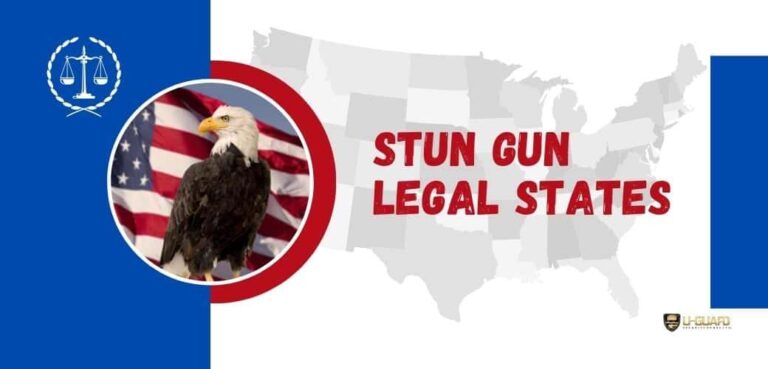Table of Contents
- West Virginia Concealed Stun Gun Eligibility and Permit Requirements
- Legal Restrictions and Prohibited Areas for Carrying Stun Guns
- Safety Tips and Best Practices for Responsible Stun Gun Use
- How to Renew or Update Your Concealed Stun Gun Permit in West Virginia
- Insights and Conclusions
West Virginia Concealed Stun Gun Eligibility and Permit Requirements
In West Virginia, individuals seeking to carry a concealed stun gun must meet specific eligibility criteria outlined by state law. Generally, anyone legally permitted to possess a firearm can also carry a stun gun, as there are no distinct statewide restrictions specifically targeting stun gun ownership. However, it is crucial to be at least 18 years old and legally competent, meaning those with certain felony convictions or legal incapacitations may be barred from carrying. Unlike firearms, West Virginia does not require a permit to carry a concealed stun gun, but familiarity with local ordinances and regulations is advisable to avoid complications.
Although a permit is not mandatory, carrying a concealed stun gun responsibly and understanding related permit requirements for other self-defense items can enhance personal safety. Key considerations include:
- Possession Restrictions: Individuals convicted of violent felonies or under restraining orders may face prohibitions.
- Location Boundaries: Stun guns may be restricted in certain areas such as schools, government buildings, and private properties that expressly forbid them.
- Legal Compliance: Users must adhere to state and federal laws to avoid penalties.
Legal Restrictions and Prohibited Areas for Carrying Stun Guns
While West Virginia allows the possession and concealed carrying of stun guns with minimal restrictions, it’s crucial to understand certain legal boundaries designed to regulate their use and protect public safety. Carrying a stun gun in the following areas is expressly prohibited, regardless of whether you have a permit or not:
- Federal buildings and properties
- Schools and educational institutions
- Airports and on commercial flights
- Courthouses and government offices
- Private properties where owners expressly forbid weapons
Violating these prohibitions can result in serious legal consequences, including fines or criminal charges. Additionally, it’s important to note that using a stun gun in a threatening or unlawful manner may lead to prosecution under assault laws. Always ensure you remain informed about local ordinances and respect private property rights, as cities or counties might implement additional restrictions beyond state law.
Safety Tips and Best Practices for Responsible Stun Gun Use
When handling a stun gun, prioritize personal safety and responsibility at all times. Always ensure the device is kept securely in a holster or protective case to prevent accidental discharge. Familiarize yourself with the device’s operational features, including the activation mechanism and safety locks, before carrying it in public. Never point or aim the stun gun at anything you do not intend to incapacitate, and always avoid unnecessary tests or demonstrations to reduce the risk of injury. Additionally, keep the stun gun out of reach of children and unauthorized individuals to prevent misuse.
Adhering to basic maintenance routines will help ensure your stun gun functions reliably when needed. Regularly check the battery life and charge or replace batteries as necessary. Clean the device according to the manufacturer’s guidelines to prevent malfunctions. In emergency situations, remember that stun guns are most effective when used as a last resort to deter attackers or threats, followed by immediate contact with law enforcement. This approach not only maximizes your safety but also supports legal compliance within West Virginia’s concealed stun gun laws.
How to Renew or Update Your Concealed Stun Gun Permit in West Virginia
To ensure your concealed stun gun permit remains valid in West Virginia, it’s essential to stay ahead of the expiration date. The renewal process typically requires you to submit a renewal application to the local law enforcement agency or the issuing authority. Alongside the application, you may need to provide updated proof of residency, proof of completed training or refresher courses, and pay the applicable renewal fee. Remember, failure to renew your permit on time can lead to complications and potential legal issues while carrying your stun gun.
When preparing to renew or update your permit, keep in mind these important points:
- Start early: Begin the renewal process at least 30 days before expiration to avoid any lapses in your permit status.
- Maintain training: Some counties may require updated training or safety classes to demonstrate your continued proficiency and responsibility.
- Keep documentation ready: Gather your identification, permit details, and any supporting forms to streamline the process.
- Stay informed: West Virginia laws can change, so check for any legal updates that might affect your permit or carrier rights.
Insights and Conclusions
In summary, understanding West Virginia’s concealed stun gun laws is essential for anyone considering this form of self-defense. While the state allows the possession and concealed carry of stun guns without a permit, it’s important to stay informed about local regulations and restrictions to ensure you remain compliant. Always prioritize safety and legal responsibility when choosing to carry a stun gun. Staying up to date with any changes in the law will help you protect yourself confidently and within the bounds of West Virginia’s legal framework.Check Our Other Blogs
- StunGun – Your Trusted Source for Stun Guns, Laws, and Self-Defense Tips
- PepperSprayLaws – Your Trusted Resource for Pepper Spray Information
- StunGunLaws – Your Trusted Guide to Stun Gun Legality and Safety





